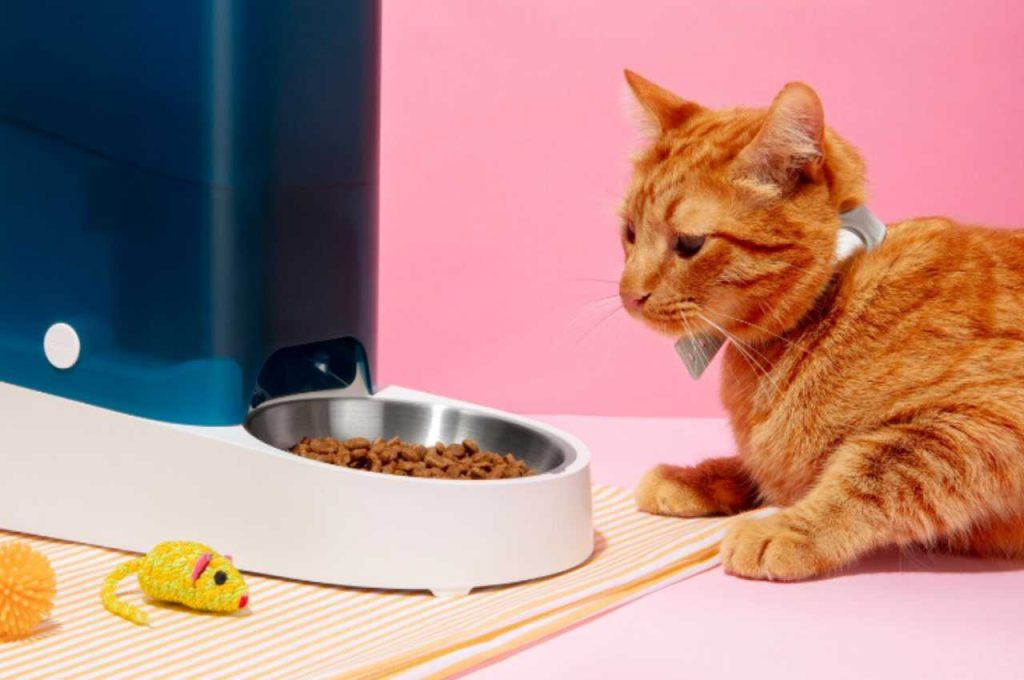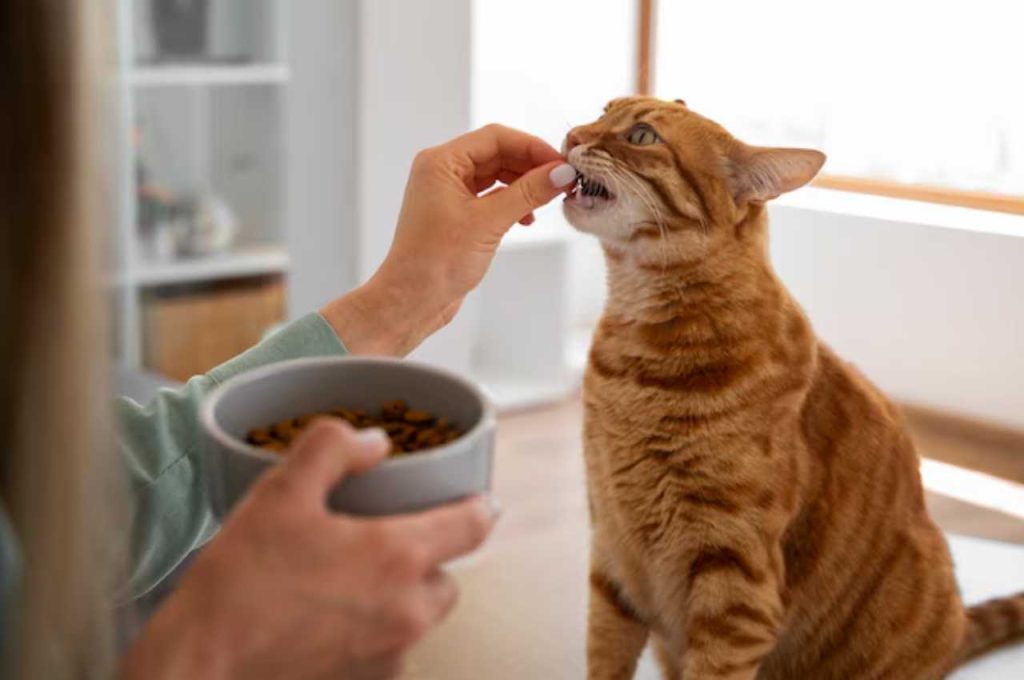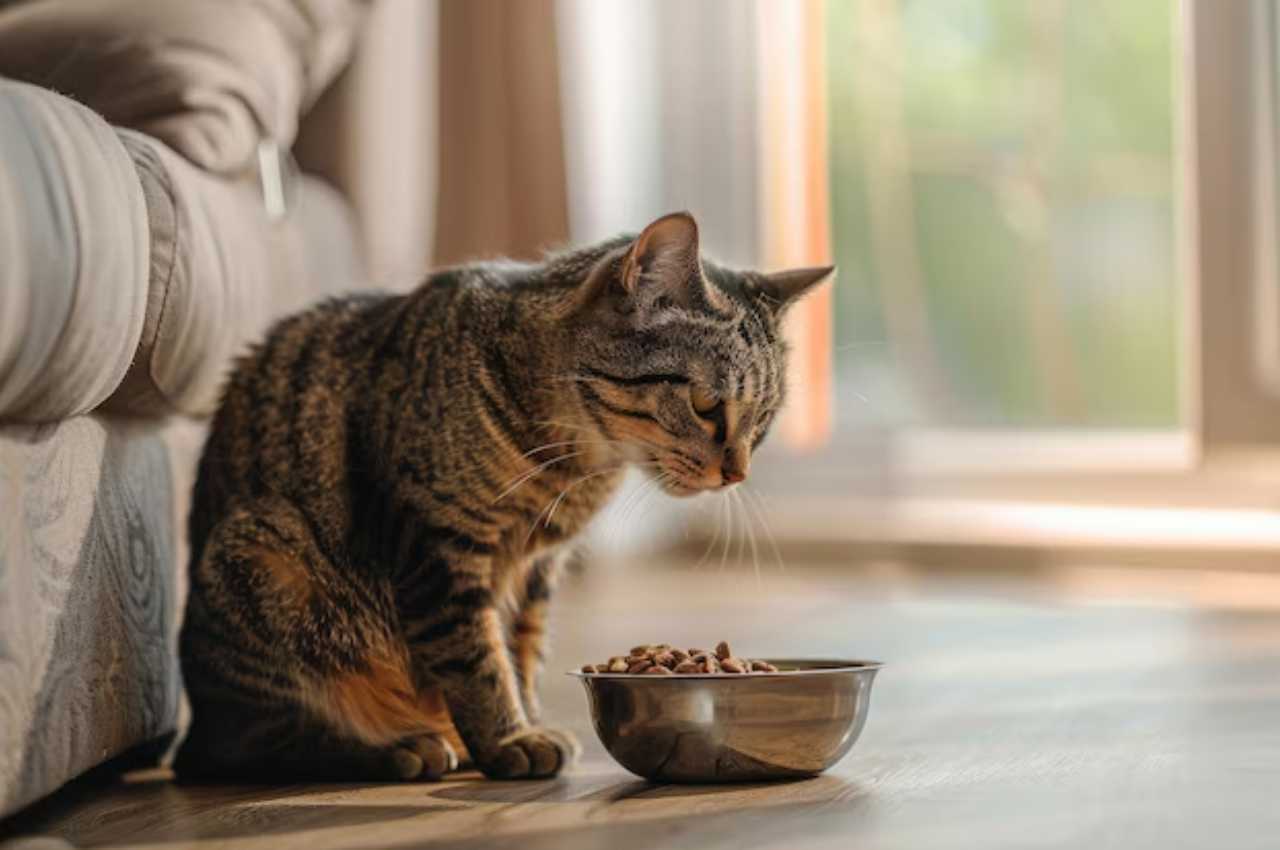As cats age, their eating habits may change due to reduced activity levels and slower metabolism. Older cats may eat less or have specific dietary requirements.
It is important to monitor their food intake and adjust accordingly to ensure their nutritional needs are met. Additionally, senior cats may develop dental issues that can affect their ability to eat comfortably. Regular veterinary check-ups can help address any changes in eating habits and ensure your older cat stays healthy and well-nourished. By understanding and accommodating your aging cat’s changing dietary needs, you can help them maintain a happy and healthy life.
Introduction to Feline Dietary Changes
As cats age, their dietary needs change and it’s important to adjust their food accordingly. Older cats may need more protein, fewer calories, and supplements to support their joints and digestive system. It’s crucial to consult with a veterinarian to ensure your feline friend is getting the proper nutrition for their age and health.

Why This Topic Matters
Cats undergo dietary changes as they age, impacting their health and well-being. Do cats’ eating habits change as they get older? Yes, they often require different nutrients and may eat less. Understanding these changes is crucial for maintaining their health and ensuring they receive the right nutrition.
What to Expect in This Article
This article will delve into the reasons behind feline dietary changes and offer insights on how to adapt their diets accordingly.
Cats’ Dietary Needs: a Brief Overview
Cats’ dietary needs change as they get older, requiring adjustments to their feeding habits and nutritional intake. Understanding the nutritional requirements and how age affects metabolism is crucial in ensuring that older cats receive the appropriate diet to support their health and well-being.
Nutritional Requirements
Cats’ nutritional requirements are influenced by factors such as age, activity level, and overall health. A balanced diet for cats typically includes protein, fats, carbohydrates, vitamins, and minerals. Protein is especially important for older cats to maintain muscle mass and support organ function. Additionally, adequate hydration is essential, as older cats may be prone to kidney issues. High-quality, age-appropriate cat food can help address these nutritional needs.
How Age Affects Metabolism
As cats age, their metabolism may slow down, leading to potential weight gain or loss. This can impact their dietary needs, requiring adjustments in portion sizes and nutrient levels. Older cats may also experience changes in their digestive system, making it important to consider easily digestible food options. Regular veterinary check-ups can help monitor any metabolic changes and ensure that the cat’s diet is appropriately tailored to their age and health status.
Kitten to Adult: The Dietary Transition
As cats age, their eating habits undergo a transition from kitten to adult. With this change, their dietary needs may also shift, requiring adjustments in their food to cater to their evolving nutritional requirements. Understanding these changes and providing appropriate nutrition is essential for maintaining the health and well-being of older cats.
Weaning Off Milk
As kittens grow, they naturally wean off milk to solid foods.
Middle-aged Munchies: Stability and Changes
As cats age, their eating habits may change due to factors like reduced activity levels and metabolism. It’s important to monitor their diet and adjust accordingly to maintain their health and weight. Providing a balanced diet tailored to their needs can help ensure their stability and well-being as they enter their middle-aged years.
As cats enter their middle-aged years, their eating habits may start to shift. It is important for cat owners to be aware of these changes to ensure their furry friends maintain their weight and overall health. In this article, we will explore the topic of how cats’ eating habits change as they get older, focusing on the subheading: Middle-Aged Munchies: Stability and Changes.
Maintaining Weight and Health
During middle age, maintaining an optimal weight becomes crucial for cats to prevent obesity and related health issues. It is common for cats to become less active during this stage of life, which can lead to weight gain if their caloric intake is not adjusted accordingly. On the other hand, some cats may experience a decrease in appetite, leading to potential weight loss. To ensure your cat’s weight remains stable and within a healthy range, it is essential to monitor their food intake. Consider consulting with your veterinarian to determine the appropriate amount of food and the best diet for your middle-aged cat. Additionally, providing regular exercise opportunities, such as interactive play sessions or access to climbing structures, can help keep your cat active and maintain their weight.
First Signs of Aging
As cats enter their middle-aged years, they may start showing the first signs of aging. This can manifest in various ways, including changes in appetite and digestion. Some cats may experience a decrease in their sense of smell and taste, which can affect their interest in food. Dental issues, such as gum disease or tooth decay, can also contribute to a decline in appetite. To ensure your cat continues to receive proper nutrition, consider switching to a diet specifically formulated for senior cats. These diets often address common age-related issues, such as joint health or dental care. Regular dental check-ups and cleanings are also important to maintain your cat’s oral health and appetite.
In conclusion, as cats enter their middle-aged years, their eating habits may undergo changes. It is crucial for cat owners to be aware of these changes and take appropriate measures to maintain their cat’s weight and overall health. By monitoring their food intake, providing regular exercise, and addressing age-related issues, you can help your middle-aged cat enjoy a healthy and fulfilling life.
Senior Cats: Special Dietary Considerations
As cats age, their eating habits may change, requiring special dietary considerations. Senior cats may develop dental issues, reduced appetite, or slower metabolism, necessitating a switch to softer food, smaller, more frequent meals, or specialized senior cat diets to ensure they receive proper nutrition.

As cats age, their nutritional needs change. Senior cats require special dietary considerations to maintain good health and prevent age-related diseases. Decreased activity levels and managing chronic conditions are two key factors that should be taken into account when it comes to feeding senior cats.
Decreased Activity Levels
Senior cats tend to be less active than their younger counterparts. This means they require fewer calories to maintain a healthy weight. Overfeeding can lead to obesity, which is a risk factor for many health problems such as diabetes, arthritis, and heart disease. To prevent obesity in senior cats, it’s important to feed them a balanced diet that is lower in calories and higher in protein. Many senior cat foods are formulated with these needs in mind, and they may also contain additional nutrients such as antioxidants to support overall health.
Managing Chronic Conditions
As cats age, they may develop chronic conditions such as kidney disease, dental problems, or thyroid issues. These conditions can affect their appetite and ability to absorb nutrients, making it even more important to provide them with a balanced diet that meets their specific needs. In some cases, senior cats may require a special diet prescribed by a veterinarian to manage their condition.
For example, cats with kidney disease may need a low-protein diet to reduce the workload on their kidneys, while cats with dental issues may benefit from soft or wet food that is easier to chew. Overall, it’s important to work closely with a veterinarian to determine the best diet for your senior cat based on their individual needs. By providing them with the right nutrition, you can help ensure they enjoy a happy and healthy life in their golden years.
Common Health Issues and Dietary Adjustments
As cats age, their dietary needs and eating habits may undergo changes due to various health issues. It is important for cat owners to be aware of these common health concerns and make appropriate dietary adjustments to ensure their furry companions remain healthy and happy.
Dental Problems
Dental problems are a common issue that many cats face as they get older. Periodontal disease, tooth decay, and gum infections can cause discomfort and make it difficult for cats to chew their food properly. This may lead to a decrease in appetite or even weight loss.
To help address dental problems, it is essential to provide cats with food that promotes dental health. Look for specially formulated cat foods that are designed to reduce plaque and tartar buildup. These foods often have a larger kibble size or a unique texture that helps clean teeth as the cat chews. In addition to specialized cat food, regular dental care is crucial. Brushing your cat’s teeth regularly or using dental treats and toys can help maintain good oral hygiene and prevent dental issues.
Kidney Disease
Kidney disease is another common health issue that can affect older cats. It can lead to a decrease in appetite, dehydration, and weight loss. Cats with kidney disease may require dietary adjustments to support their kidney function and overall health.
A veterinarian may recommend a diet low in phosphorus and protein for cats with kidney disease. These dietary changes can help reduce the workload on the kidneys and slow down the progression of the disease. Prescription cat foods designed for kidney support are available and can provide the necessary balance of nutrients while managing the condition.
Diabetes
Diabetes is a metabolic disorder that can also occur in cats, especially as they age. It affects the body’s ability to regulate blood sugar levels, leading to increased thirst, frequent urination, and weight loss. Dietary adjustments play a crucial role in managing diabetes in cats.
A high-protein, low-carbohydrate diet is often recommended for diabetic cats. This type of diet helps regulate blood sugar levels and can aid in weight management. It is important to consult with a veterinarian to determine the best dietary plan for a diabetic cat and to monitor their progress regularly.
In addition to dietary changes, diabetic cats may require insulin injections and regular veterinary care to manage their condition effectively.
Overall, as cats age, it is important to pay attention to their changing dietary needs and adjust their meals accordingly. Regular veterinary check-ups can help identify any underlying health issues and ensure that the appropriate dietary adjustments are made to support their overall well-being.
Choosing The Right Food for Your Aging Cat
Commercial Vs. Homemade Diets
As your cat ages, their dietary needs may change, and it’s important to consider the options available. Commercial diets are formulated to meet the specific nutritional requirements of aging cats, providing a convenient and balanced option. On the other hand, homemade diets can allow for greater control over the ingredients and customization of your cat’s meals. Consider consulting with a veterinarian or feline nutritionist to determine the most suitable approach for your aging cat.
Supplements and Vitamins
Supplements and vitamins can play a crucial role in supporting the health and well-being of aging cats. Whether it’s joint support, digestive health, or overall vitality, the right supplements can address specific age-related concerns. From omega-3 fatty acids to joint support compounds, these additions to your cat’s diet can contribute to their overall quality of life. Always consult with your veterinarian before introducing any new supplements or vitamins to your cat’s diet.
Tips for Transitioning to New Diets
As cats age, their dietary needs can change, requiring a shift in their eating habits. Transitioning to new diets for older cats can be a gradual process that needs to be handled with care. Whether you’re introducing a new type of food or adjusting portion sizes, it’s important to follow some essential tips to ensure a smooth and successful transition.
Introducing New Foods Gradually
When introducing new foods to your aging cat, it’s crucial to do so gradually. Abrupt changes in diet can lead to digestive upset and refusal to eat. Begin by mixing a small amount of the new food with their current food, gradually increasing the proportion of the new food over the course of a week or two. This slow transition allows your cat’s digestive system to adjust to the new ingredients, reducing the likelihood of gastrointestinal issues.
Monitoring Your Cat’s Response
Keep a close eye on your cat’s response to the new diet. Look for signs of digestive discomfort, such as vomiting, diarrhea, or changes in litter box habits. Additionally, observe their overall energy levels and coat condition. If you notice any negative changes, consider adjusting the transition pace or consulting with your veterinarian for guidance. Regular monitoring is essential to ensure that your cat is adapting well to the new diet.
Ensuring a Healthy Diet at Any Age
As cats age, their eating habits may change due to factors like dental issues or reduced activity levels. It’s crucial to ensure a healthy diet tailored to their specific needs at different life stages to support their overall well-being and longevity.

Cats, like humans, experience changes in their eating habits as they grow older. It is important for cat owners to understand these changes and adjust their feline friend’s diet accordingly. By providing a healthy and balanced diet, you can ensure that your cat remains in good health throughout its life.
Key Takeaways
- As cats age, their nutritional needs may change, requiring adjustments in their diet.
- Senior cats may benefit from a diet that is lower in calories and higher in protein to support muscle mass and prevent obesity.
- Consult with your veterinarian to determine the best diet for your cat’s specific needs.
- Regular monitoring of your cat’s weight and overall health is crucial to detect any dietary issues or health concerns.
- Introduce dietary changes gradually to avoid digestive upset.
By keeping these key takeaways in mind, you can ensure that your cat’s nutritional needs are met at every stage of its life. Remember, a healthy diet is the foundation of a happy and thriving feline companion.
Conclusion
As cats age, their eating habits can change due to various factors such as dental problems, illnesses, and changes in metabolism. It is important for cat owners to pay attention to their pet’s eating patterns and consult with a veterinarian if they notice any significant changes.
Providing proper nutrition and care can ensure that cats maintain a healthy weight and live a happy, fulfilling life in their golden years. Remember to monitor your cat’s eating habits and make adjustments as necessary to keep them healthy and happy.
